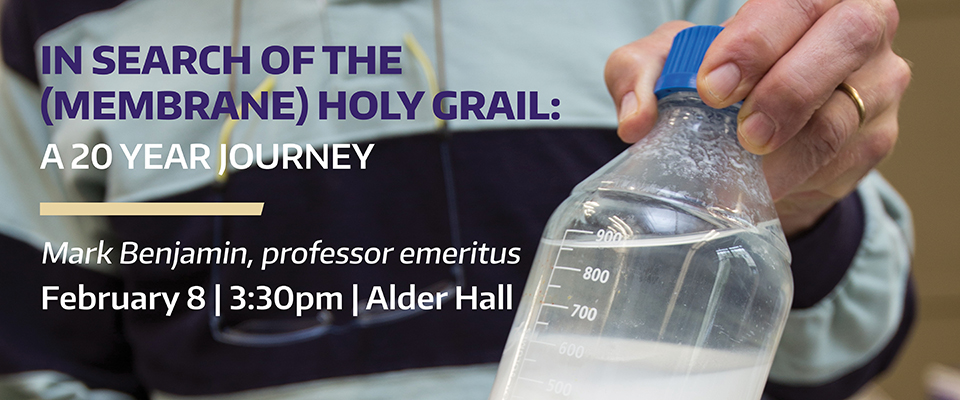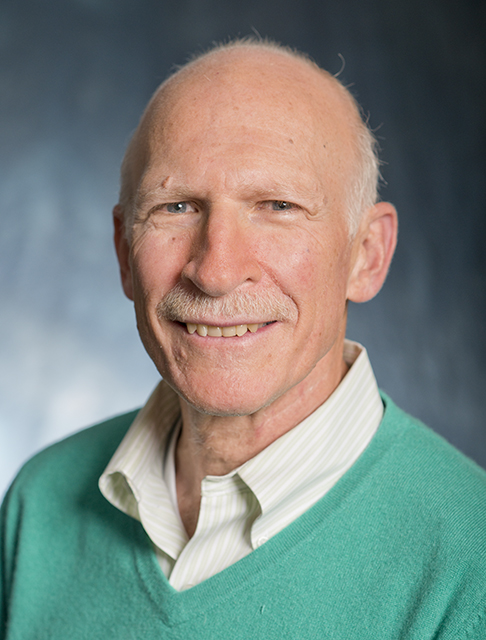Burges Lecture 2018

2018 Steve and Sylvia Burges Endowed Lecture in Civil and Environmental Engineering
In Search of the (Membrane) Holy Grail: A 20-Year Journey
Thursday, February 8, 3:30pm
Alder Hall Auditorium
Reception to follow
Featuring CEE professor emeritus Mark Benjamin
 |
| Professor Emeritus Mark Benjamin |
In the past few decades, the successful application of membranes to remove contaminants from water is arguably the biggest advance in water treatment since chlorination was introduced for disinfection more than 100 years ago. However, even with such a dramatic impact, the technology’s potential is far from realized. This is largely due to the limitations imposed by membrane fouling; i.e., the plugging of membrane pores by contaminants that the membrane has captured. Researchers worldwide have grappled with the challenge of reducing fouling and have made great strides in the process, but opportunities for major advances remain.
During the past 20 years, professor emeritus Mark Benjamin’s research group has developed and demonstrated a novel process for fouling mitigation built around a new type of particle they generated and a new approach for contacting the particles with water. The work has been nurtured by support from the National Science Foundation, the Office of Naval Research and CoMotion (the UW’s office of technology transfer), facilitating its growth from bench-scale testing of a single beaker of water to pilot systems that can treat more than 10,000 gallons per day. At virtually every step, the researchers have encountered unexpected and challenging issues, many of which they have overcome, but some of which they continue to struggle with. The presentation will provide an overview of the successes, frustrations and excitement they still feel about the potential of the new process.
Benjamin joined the UW CEE faculty in 1977 after earning his B.S. degree in Chemical Engineering from Carnegie-Mellon University and his Ph.D. in Environmental Engineering from Stanford University. Over the next 39 years, Benjamin’s research focused on physical and chemical water treatment processes, leading most recently to the development of a new approach to enhance the performance of membranes in water treatment. Benjamin’s research was recognized by his selection as the Association of Environmental Engineering and Science Professors Distinguished Lecturer for 2009-10, several awards for best publications in various journals, and four awards won by his students for best doctoral dissertation in environmental engineering.
In addition to his research efforts, while at UW Benjamin wrote graduate-level textbooks on Water Chemistry and Physical-Chemical Treatment of Water (with co-author Professor Desmond Lawler of the University of Texas) and served as adviser for the UW chapter of Engineers Without Borders from its inception in 2005 until 2016. Benjamin retired from the CEE Department in 2016 and is currently President and CEO of MicroHAOPs, Inc., a startup company devoted to improving water treatment with membranes.